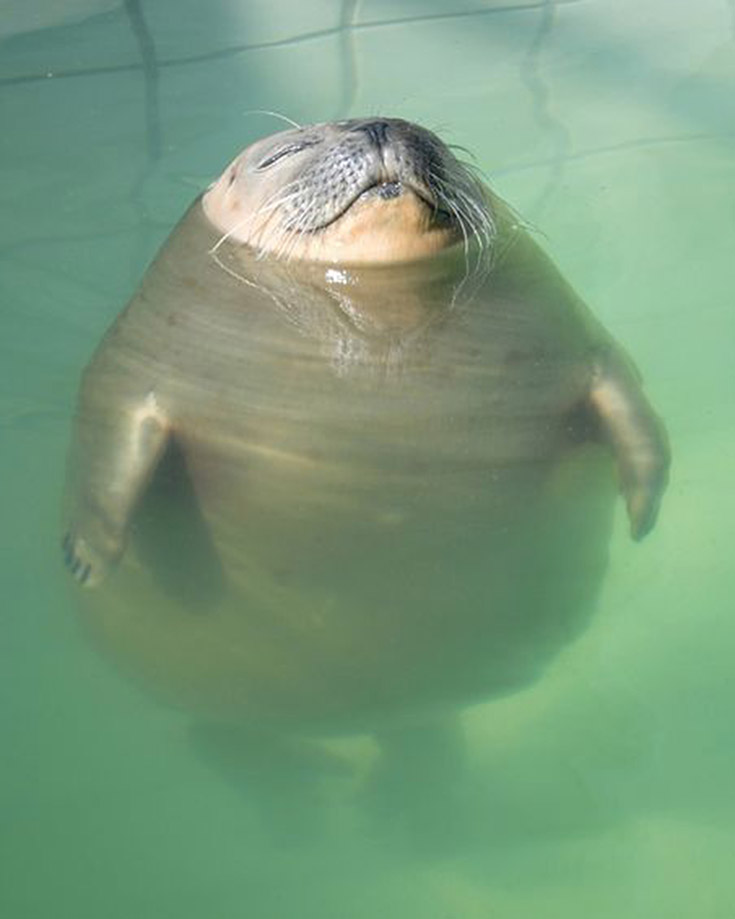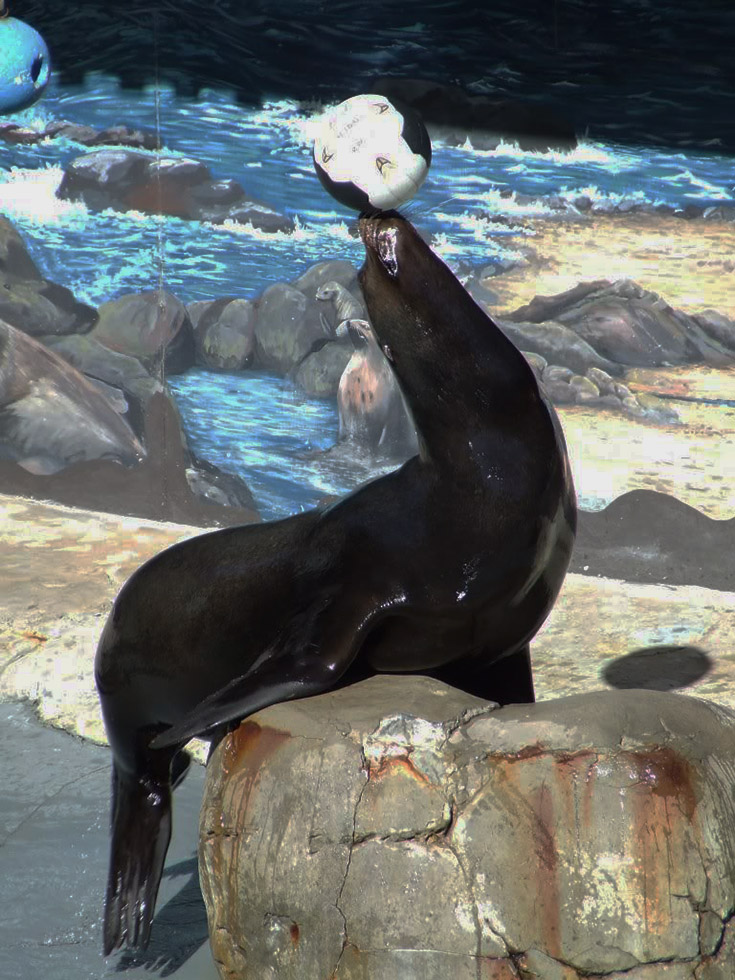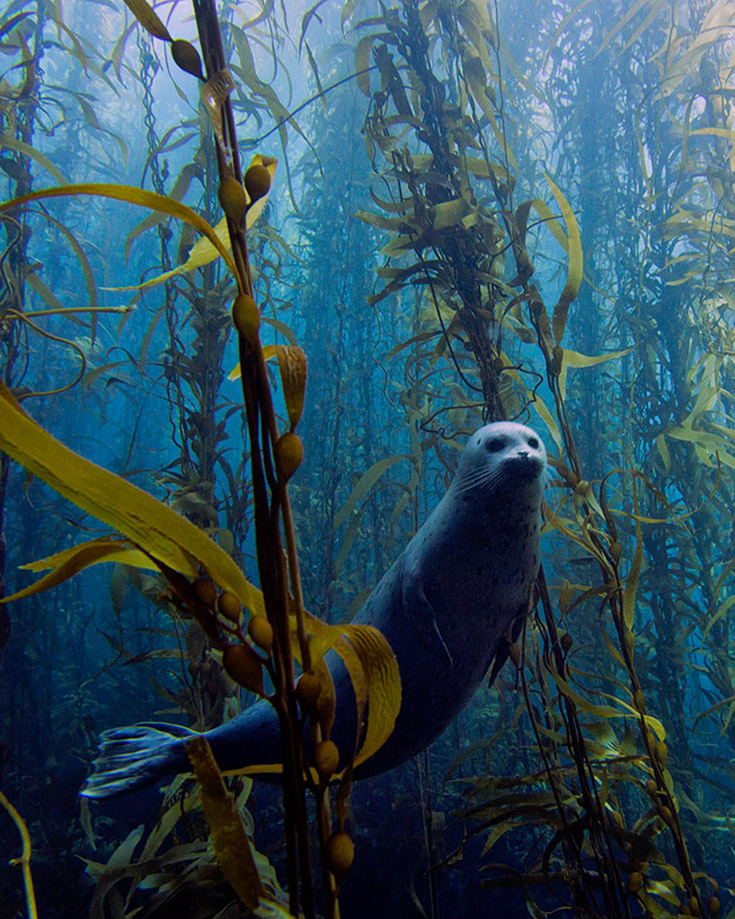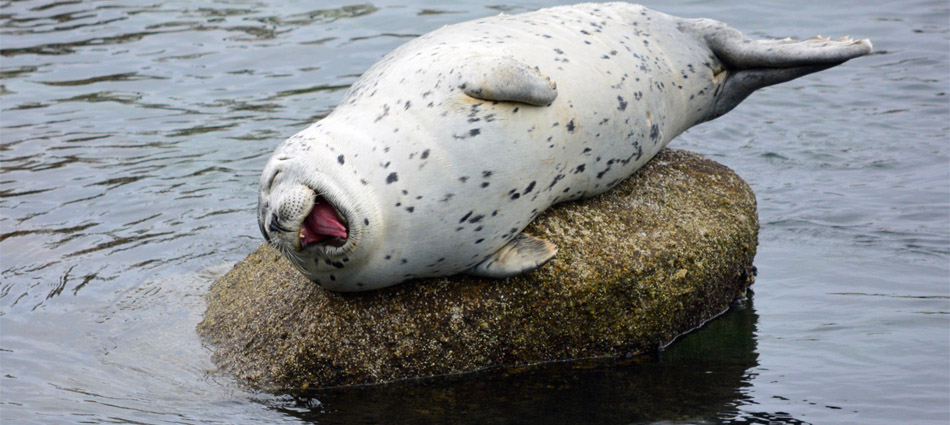You may want a chubby seal more than anything, but it could never be happy living away from the ocean in the apartment you share with four people.
Reasons why seals are the jello puppies of the sea:
1. They are 40% blubber.

When a seal bounces awkwardly toward you (because it is not used to land) you cannot help but smile. Especially if it is a situation where the seal is interacting with you, or when watching a funny YouTube video. This is because their body’s have such a high percentage of fat. This extra layer of blubber helps pinnipeds regulate their temperatures in freezing cold ocean water. Unfortunately it also makes them taste delicious to anyone without a lot of access to fats and oils in their diet because they live in extreme environments, such as Eskimos, Aborigines, orcas and sharks.
2. You can train them to do tricks.

Any ocean themed amusement part worth it’s salt has a team of sea lions and seals swimming around in pools, jumping through hoops, balancing beach balls on their nose and other amazing feats of acrobatics. They seem to get along well with their trainers, and although they lack the ocean, they do get an ample diet and safety from predators. Pinnipeds can understand simple commands, and some of them bob their heads in time to music. It only takes a year to teach a sea lion a new trick well enough for live performance.
3. Their babies are desperate for attention.
Depending on the species, seal mothers typically nurse their pups for a few months or even days, before they have to return to the sea for more sustenance. Since baby seals don’t know how to swim yet, they just leave them on the shore en masse while they go fishing for days at a time. As the animals are still young and naive at this stage, it is easy for anyone to approach them, including tourists, nature photographers, poachers and hungry orca whales. If they take a liking to you they may want to cuddle like the 200-pound baby elephant seal in the video above.
4. They are excellent divers.

If you didn’t believe seals were from the sea then consider this, seals and sea lions are highly adapted to swim long distances, dive deeper than any human ever could and hold their breathe for a long time. Large pinnipeds such as elephant seals can hold their breath for two hours at a time. They do this by exhaling and completely collapsing their lungs before they dive. Any leftover air goes to the seal’s trachea to prevent decompression sickness or ‘the bends.’ Their middle ear contains a special sinus that fills up with blood to keep their ears from popping.
Obviously seals are cute and awesome, and should be regarded as such. They can often be seen from passing boats posing for photographs on docks and buoys. To learn more about pinnipeds visit a local aquarium or beach, such as La Jolla Cove in San Diego, California.
Elizabeth de Moya lives near San Diego, CA. She volunteers for the birds, and she works at the zoo. She is going back to school to study pre veterinary medicine. She has a BA in Linguistics from UC Berkeley.
